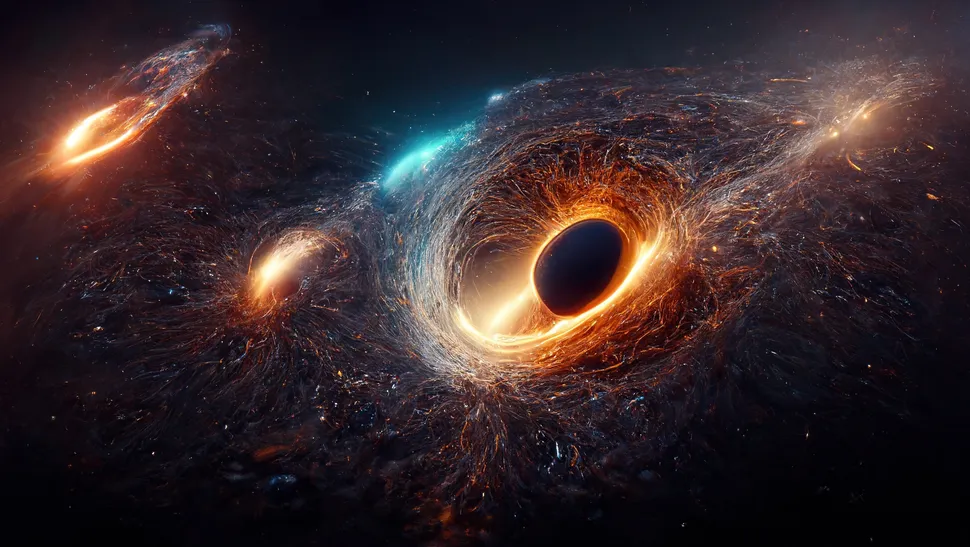Introduction
A groundbreaking theory in cosmology proposes that the universe might not have begun with the Big Bang. Instead, it suggests a cyclical model where the universe alternates between phases of contraction and expansion. If this idea holds, it could unlock new insights into the mysterious nature of black holes and dark matter.
Bouncing Cosmology: A New Perspective
The traditional view of the universe’s origin revolves around a singularity, followed by a rapid expansion phase known as inflation. However, recent research points to an alternative: the “bouncing” cosmology model. According to this theory, the universe underwent a phase of contraction before rebounding into the current state of expansion we observe. This rebound phase led to the Big Bang and subsequently to the universe as we know it today.
Dark Matter and Black Holes: The Connection
The new study suggests that dark matter could be made up of primordial black holes, which formed during the transition from the last contraction phase to the current expansion phase. This would mean these black holes existed before the Big Bang. If this hypothesis is correct, the formation of these black holes would have generated gravitational waves. Future gravitational wave detectors might be able to pick up these signals, providing a way to confirm this scenario.
Observational Evidence for Dark Matter
Observations of stellar movements within galaxies and data from the cosmic microwave background — the residual radiation from the Big Bang — indicate that dark matter makes up about 80% of the universe’s total matter. Despite its prevalence, scientists have not been able to determine what dark matter is made of. The idea that it could consist of primordial black holes offers a fascinating new avenue of research.
The Concept of a Bouncing Universe
In this bouncing cosmology model, the universe initially contracted to a size vastly smaller than it is today, about 50 orders of magnitude smaller. During the rebound, when the matter density peaked, conditions were ripe for the formation of black holes from quantum density fluctuations. These primordial black holes could be the dark matter we have been searching for.
Conclusion
This new approach to understanding the universe’s origins could revolutionize our knowledge of cosmology. By exploring the concept of a bouncing universe, scientists are opening up possibilities for understanding what happened before the Big Bang and the nature of dark matter. As research progresses, this theory could offer new insights into the most fundamental questions about the cosmos.


